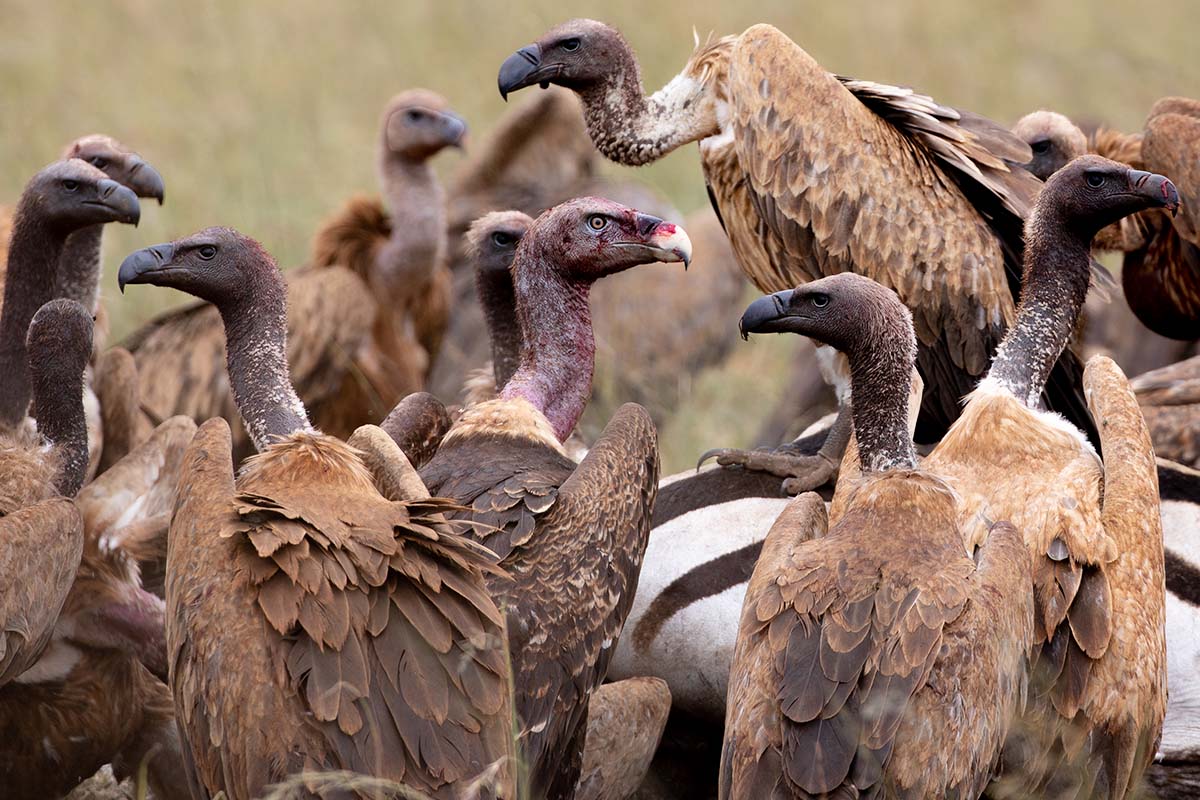
Vultures occupy one of the least glamorous niches in many people’s estimations. But regardless of whether you may find them ugly or revolting, they are highly intelligent creatures who fulfill the crucial role of being the natural world’s clean-up crew. In the wake of the recent drought that devastated Amboseli, their role was doubly important.
Yet for these nomads of the endless horizon, fate hangs in the balance.
Since the 1980s, the trajectory of almost all vulture populations in Africa has been a near nosedive. With the rise in cheap and readily available poisons and pesticides, pastoralists found an effective means of retaliating against lions, hyenas, and other predators that kill their livestock. It’s a simple and deadly formula: lace a carcass with poison and wait as all the predators that return to it die a slow death, doing so alongside the countless vultures who got there first. As a result, six out of the seven vulture species in Kenya are listed as threatened, with four being critically endangered.
It was partly in response to the high frequency of lion poisoning events in Mbirikani that our Predator Protection Program was implemented in 2003, including our Predator Compensation Fund. In the two decades since, poisoning events have been reduced to almost zero across our area of operation. While lions and other predators are the primary focus of those programs, it’s not an accident that vultures are also benefiting.
It will take a shift in human behavior at a global scale to reverse these birds’ fortunes as their ranges exceed mere regional and national boundaries. But as we have shown, change is possible, and we are proud to do what we can to ensure these regal raptors still soar over Amboseli’s skies.
Photo: Josh Clay
